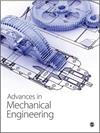Toward an optimal twisting-sliding mode control of a three-phase PMSM for electric vehicles
IF 1.9
4区 工程技术
Q3 ENGINEERING, MECHANICAL
引用次数: 1
Abstract
This paper deals with an optimal twisting sliding mode controller (OT-SMC) for the operation of a three phase permanent magnet synchronous machine (PMSM) in an electric vehicle (EV). In order to drive these vehicles, optimal performance is needed with robust control against real-time disturbances such as the variable load torque, uncertainties such as the parameters variation and speed variations between medium, low, and high speed as well as good performance characteristics for enhanced drive quality and longer battery time. Several conventional techniques have been applied to PMSM but they suffer from the problem of uncertainties and disturbances due to the PI regulator. A hybrid approach comprising of a robust nonlinear and optimal controller to achieve these objectives is attempted for driving electrical vehicles. This advanced hybrid controller obtained after the merger of sliding mode control (SMC) and a linear quadratic controller (LQR) is found to outperform existing controllers due to their superb performance characteristics. Furthermore, SMC is designed based on the exponential reaching law for the twisting sliding mode control (T-SMC) in order to ensure stability of the system while reducing the chattering, accelerating the rate of convergence with higher accuracy of the control performance, and the LQR is developed using the steady-state error method (N-LQR) in order to obtaining better performance characteristics. In addition, the hybridization between a twisting SMC and an optimal LQR is characterized by stabilizing and minimizing the oscillations in the permanent regime thus optimizing the system’s performance. Extensive simulation results illustrate the effectiveness and validity of the proposed control for achieving the highest performance of the PMSM.电动汽车用三相永磁同步电机扭滑模优化控制研究
研究了电动汽车三相永磁同步电机(PMSM)运行的最优扭转滑模控制器(OT-SMC)。为了驱动这些车辆,需要对实时干扰(如可变负载扭矩、参数变化和中低高速之间的速度变化等不确定性)进行鲁棒控制,以实现最佳性能,并具有良好的性能特性,以提高驱动质量和延长电池使用时间。几种传统的技术已经应用于永磁同步电机,但它们受到不确定性和干扰的问题,由于PI调节器。为了实现这些目标,尝试了一种由鲁棒非线性控制器和最优控制器组成的混合方法。将滑模控制(SMC)与线性二次型控制器(LQR)相结合而得到的先进混合控制器具有优异的性能,优于现有的控制器。在此基础上,基于指数趋近律设计扭转滑模控制(T-SMC)的滑模控制(SMC),在保证系统稳定性的同时减少抖振,加快收敛速度,提高控制性能精度;采用稳态误差法(N-LQR)开发LQR,以获得更好的性能特性。此外,扭转SMC和最优LQR之间的杂化具有稳定和最小化永久状态下的振荡从而优化系统性能的特点。大量的仿真结果表明了所提出的控制方法的有效性和有效性,可以实现永磁同步电机的最高性能。
本文章由计算机程序翻译,如有差异,请以英文原文为准。
求助全文
约1分钟内获得全文
求助全文
来源期刊

Advances in Mechanical Engineering
工程技术-机械工程
CiteScore
3.60
自引率
4.80%
发文量
353
审稿时长
6-12 weeks
期刊介绍:
Advances in Mechanical Engineering (AIME) is a JCR Ranked, peer-reviewed, open access journal which publishes a wide range of original research and review articles. The journal Editorial Board welcomes manuscripts in both fundamental and applied research areas, and encourages submissions which contribute novel and innovative insights to the field of mechanical engineering
 求助内容:
求助内容: 应助结果提醒方式:
应助结果提醒方式:


